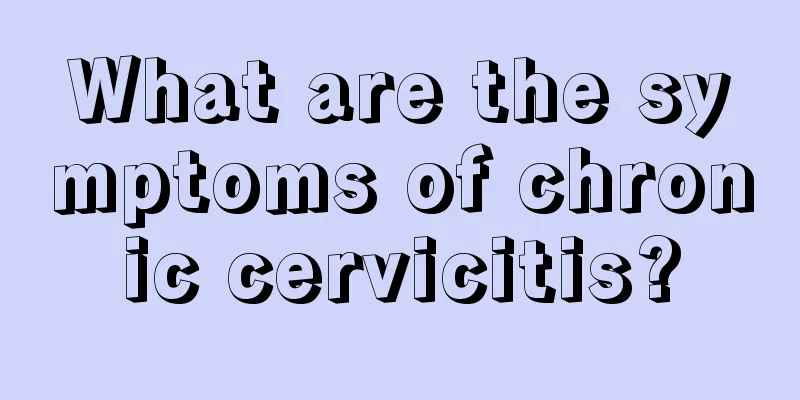Is chronic vaginitis serious?

|
Chronic vaginitis is a relatively serious disease. Most patients cannot be cured in a short period of time. They may even need to take medication for a long time to prevent the disease from worsening. This will affect the patient's normal life. If drug treatment has no effect on the patient, they should choose appropriate surgical treatment according to their own situation. 1. Bacterial vaginosis 10% to 40% of patients have no clinical symptoms. Those with symptoms mainly present with increased vaginal discharge with a fishy odor, which is especially aggravated after sexual intercourse and may be accompanied by mild vulvar itching or burning sensation. Examination showed no signs of congestion or inflammation in the vaginal mucosa. The secretions were grayish white, uniform, thin, and often adhered to the vaginal wall, which could be easily wiped off. 2. Candidal vaginitis (1) Vulvar itching, burning pain, and pain during sexual intercourse. (2) Frequent and painful urination. The characteristic of dysuria is that urine irritates the edematous vulva and vestibule during urination, causing pain. (3) Characteristic secretion: white, thick, and resembling curd or bean curd residue. (4) Vulvitis presents with geographic erythema, edema, and scratches. (5) Vaginitis may cause edema, erythema, and white membrane. 3. Trichomonas vaginitis (1) Characteristics of increased vaginal discharge: thin, purulent, yellow-green, foamy, and smelly. (2) Location of vulvar itching: vaginal opening and vulva. (3) If combined with urinary tract infection: frequent urination, urgency, pain, and sometimes hematuria. (4) Infertility: Trichomonas vaginalis can devour sperm, hinder the production of lactic acid, and affect its survival in the vagina. (5) Examination revealed: congestion of the vaginal mucosa with scattered bleeding spots, and a large amount of "strawberry-like" leucorrhea in the posterior fornix of the cervix, which was grayish yellow, yellowish-white thin liquid or yellowish-green purulent secretions, often in a foamy state. There are no abnormal changes in the vaginal mucosa of carriers. 4. Senile vaginitis Increased vaginal discharge, vulvar itching, etc., are often accompanied by pain during sexual intercourse. 5. Childhood vaginitis The main symptoms are vaginal purulent discharge and vulvar itching. Generally, the drug treatment for vaginitis is mainly external use. Patients with pelvic inflammatory disease or recurrent vaginitis can take oral medications. If necessary, couples can be treated together. Note that long-term oral antibiotics may inhibit normal flora and cause secondary fungal infection. |
<<: Are pubic lice contagious?
>>: Symptoms of uterine effusion
Recommend
Scientists redefine obesity, the "golden index" you have been using is about to change
BMI has long been the most commonly used indicato...
What kind of flour is needed to make red bean paste buns? How to make red bean paste buns
Handmade red bean paste buns are a traditional de...
What are the measures for female vulva care?
As people's life pressure continues to increa...
How to relieve dizziness during early pregnancy
I believe that many pregnant women have experienc...
How do women clean their private parts?
For women, it is very important to take care of t...
Ovulation calculator
Ovulation Calculator is a software tool developed...
Can Trichomonas be transmitted to outer pants?
Candidal vaginitis is contagious and can be trans...
How to remedy headaches during confinement?
The month after a pregnant woman gives birth is c...
Several treatments for Ureaplasma urealyticum infection in women
Some of you may have heard of the symptoms of ure...
People's Court Daily: Beware of the "beauty trap" of weight loss chocolate
"Are you still worried about losing weight? ...
How to prevent mice from entering the engine compartment? Why do mice enter the engine?
We often see news about car owners getting small ...
What does multiple ovarian calcifications mean?
Many people don’t know what calcification foci me...
An 8-year-old child was infected with HPV while taking a hot spring bath! 6 things both boys and girls should know about HPV!
Recently, a piece of news went viral online: an 8...
How can I get pregnant faster?
Preparing for pregnancy is not a simple technical...









